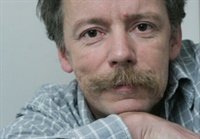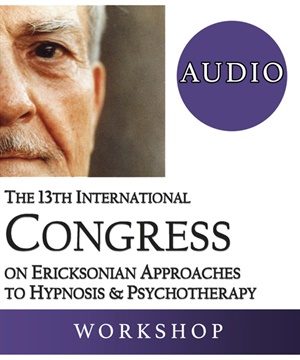IC19 Workshop 41 - OCD and Post-Hypnotic Suggestions: Advanced Techniques of OCD Therapy - Krzysztof Klajs, Dipl. Psych
- Average Rating:
- Not yet rated
- Topic Areas:
- Workshops | Obsessive Compulsive Disorder (OCD) | Hypnosis | Post-Hypnotic Suggestion | Suggestion
- Categories:
- Erickson Congress | Erickson Congress 2019
- Faculty:
- Krzysztof Klajs, Dipl. Psych
- Course Levels:
- Master Degree or Higher in Health-Related Field
- Duration:
- 1 Hour 57 Minutes
- Format:
- Audio Only
- Original Program Date:
- Dec 12, 2019
- License:
- Never Expires.
Description
Description:
OCD is a rather chronic illness affecting about 2.5% of adults. Its diagnosis is perceived as a demanding and challenging one. Trance phenomena can be described as natural behavioral manifestations of the trance state. They can be observed in individuals as well as in family communication patterns. In OCD families, one of the most powerful and widely present trance phenomena are the posthypnotic suggestions. They are invisible, deeply hidden, mighty and long lasting.
In this workshop, systemic ideas increasing effectiveness of therapy will be stressed. Attendees will learn how to increase therapeutic sensitivity to observe, diagnose, understand and therapeutically remodel these phenomena.
Educational Objectives:
- Indicate the most common posthypnotic suggestions circulating between relatives in OCD families.
- Describe the significance of posthypnotic suggestions in OCD treatment.
- List 3 hypnotic strategies of remodeling family posthypnotic suggestions in a therapeutic way.
*Sessions may be edited for content and to preserve confidentiality*
Credits
Faculty

Krzysztof Klajs, Dipl. Psych Related Seminars and Products
Krzysztof Klajs, Dipl. Psych., is Founder and Director of The Milton H. Erickson Institute of Poland, where he also maintains a private practice. He is certified as psychotherapist by Polish Psychiatric Association, and licensed as psychotherapist by Polish Psychological Association.


